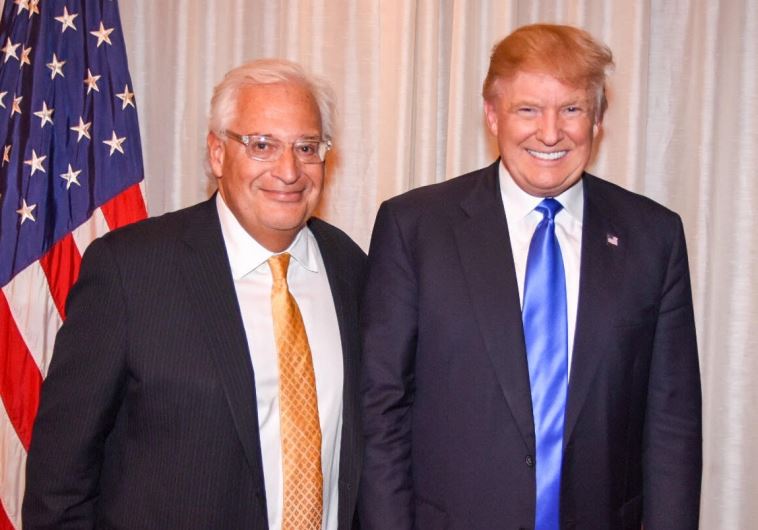UPDATES
Trump’s controversial ambassadorial pick
December 21, 2016

Update from AIJAC
Dec. 21, 2016
Update 12/16 #05
Today’s Update looks at US President-elect Donald Trump’s announcement that David Friedman is his pick for the next US Ambassador to Israel. Friedman has worked for Trump as a legal adviser for many years and holds a range of positions on Israel that are markedly different to the outgoing Obama Administration, including questioning the merits of the two-state formula for peace. A good profile of Friedman from the New York Times’ Isabel Kershner and Sheryl Gay Stolberg can be found here.
The announcement has generated considerable opposition in the media from left-leaning political groups, such as J Street, with the New York Times dedicating an editorial to the nomination (Noah Pollak looks at the alleged bias of some of the negative coverage).
The nomination comes on the heels of Trump’s pre-election promise to relocate the US Embassy in Israel from Tel Aviv to Jerusalem, thereby officially recognising the city as Israel’s capital. Friedman’s appointment and discussion of the Embassy move have rattled the Palestinian Authority. Its chief negotiator, Saeb Erekat, is promising to resign from his position, predicts the PLO will revoke its recognition of Israel and threatens the closure of US embassies across the Middle East.
Meanwhile, according to this analysis (behind Wall Street Journal paywall) from former Canadian ambassador to Israel, Vivian Bercovici, the opposition to Friedman from the diplomatic corps is based on an elitist belief that only professional diplomats can do the job.
First up, Jonathan Tobin says Friedman will make an excellent ambassador because he understands Trump’s views on the Palestinian-Israeli conflict and will have the President’s ear. Tobin dismisses Friedman’s opponents on the “Jewish left”, saying they are wedded to the notion that “those who are sympathetic to Netanyahu’s government or even the settlement movement—as Friedman is—are somehow opponents of peace”. Moreover, he says, Friedman’s critics fail to comprehend that his “views reflect an understanding of the reality of the conflict and the views of those [Israelis] who voted for Israel’s [current] government that his critics lack. Israel will, as Netanyahu has repeatedly said, embrace a two-state solution, but only in exchange for real peace rather than a truce that would only extend the conflict on terms that will make Israel less secure”. Tobin’s analysis on the implications of the embassy move can be read here. To read Tobin’s important analysis on the Friedman nomination, CLICK HERE
Next up, Council on Foreign Relations senior fellow Elliott Abrams says the opposition from the left is unwarranted because Friedman is a “smart cookie” and one of America’s top bankruptcy lawyers but if he “were a lawyer handling traffic violations but belonged to J Street, [the left] would all be applauding”. Abrams stresses that Friedman’s intimate knowledge of Israel and commitment to its security is an advantage over professional diplomats who “would not come to the position with the knowledge and commitment or the sheer intellectual power that Friedman brings, nor would they have the total confidence of the President of the United States.” To read this piece, CLICK HERE
Finally, John Podhoretz looks at how the nomination will play out in the US Congress and sees Friedman’s nomination as an important indicator that Trump recognises new thinking is needed to break the impasse in the Palestinian-Israeli conflict. To read this article, CLICK HERE
|
|
|
|
|
|
|
Tags: Israel





